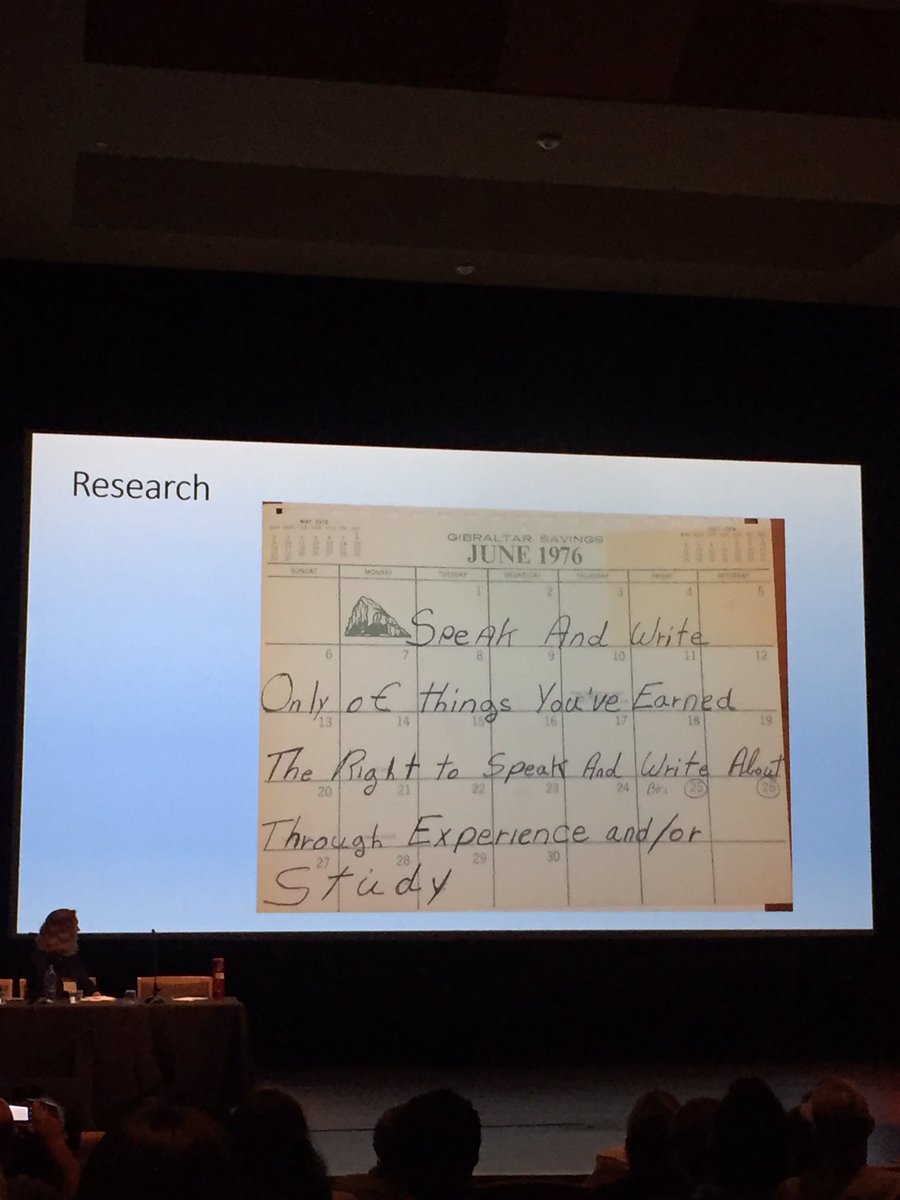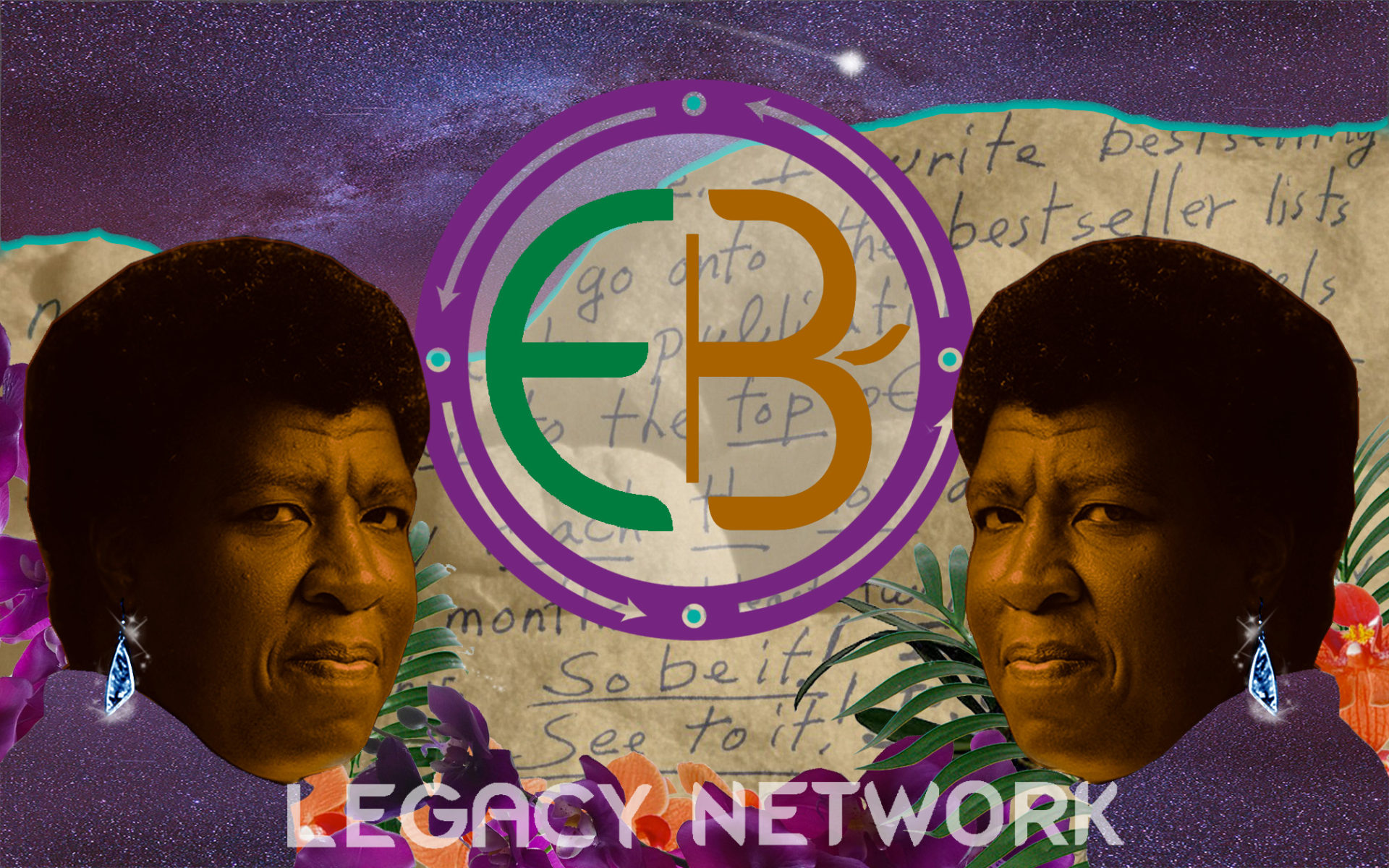
On June 23, 2017, the Octavia E. Butler Legacy Network partnered with the Huntington Library to organized the conference event titled “Octavia E. Butler Studies: Convergence of an Expanding Field.” This daylong event brought together six scholars who have each spent significant time in the Octavia E. Butler Papers at the Huntington Library to present their research which represented the rich complexity of Butler’s writing, career and personal life. The event was open to the public by registration and was free to students. The event attracted approximately 150 attendees, making it one of the larger conferences hosted by the Huntington.
The conference began with co-conveners Ayana Jamieson and Moya Bailey setting the tone for the day, inviting people to make themselves comfortable in the space and encourages folks to either tweet their questions using the hashtag #OEBStudies or write them on individual post-it notes which they could leave on stage throughout the day. Rather than having brief question and answer periods after each panel, the co-conveners planned a robust end of day roundtable discussion which allowed both audience members and presenters to make connections across the various talks.
Before the first panel, staff members from the Huntington Library provided brief welcomes. These speakers included Sue Hodson, Curator of Literary Collections who was the person who asked Butler to donate her papers to the Huntington in the first place, and Natalie Russell, Assistant Curator of Literary Collections who cataloged the Butler papers and curated the current Butler exhibition at the Huntington.
The first panel opened with Sami Schalk presenting on the role of disability in Butler’s lived experiences, research, and writing followed by Jenny Terry who presented on the Afrofuturist and, Butler’s open neologism,“histofuturist” connections between Butler’s work and the work of African American artist Ellen Gallagher. The first panel concluded with Aimee Bahng talking about Butler’s research notes about slime mold to make larger arguments about feminist queer possibilities of slime molds as well as the ways in which these beings have been taken up for capitalist means.

After the first panel there was a lunch break in which attendees were encouraged to go visit the Octavia E. Butler: Telling My Stories exhibition with a gallery tour from Natalie Russell. During both the catered lunch and the tour, participants were buzzing with excitement and sharing their love for Butler and her work with one another.

The second panel of the day featured Cassandra Jones presenting on postcolonial approaches to reading the character Anyanwu from Butler’s Patternist series followed by Gerry Canavan who discussed what appears in various drafts of Butler’s unfinished third Parable novel, Parable of the Trickster. Finally, Shelley Streeby who used Butler’s research on global warming to demonstrate how aware and prescient Butler was about climate change on not only scientific but also cultural and political levels.
The day ended with a collective roundtable featuring all the presenters and both conference co-conveners. Moya Bailey read questions which had been submitted throughout the day for individual panelists and the entire group. Presenters discussed more items they located in the archive and offered their perspectives on her work and the future of Octavia E. Butler Studies as a field of interdisciplinary research, activism, and art. In this final portion of the conference, audience members were encouraged to share what they learned, offer up their own memories of Butler or ask additional questions. One audience member shared a particularly lovely story stating that years ago her book club invited Butler to attend after they read one of her books. During the book club discussion Butler asked them each what they would do if they could do one thing to change the world. After each person shared, they asked Butler what she would do and she replied “I would make men smaller.” It is responses like this, honest, humorous and political, that attract so many people to Butler and her work. Through the conference, we hope to continue to promote, grow and honor her legacy. As one small piece of this effort, at the close of the conference Moya Bailey asked everyone to share one word they would take away from the event with them. As people shared their single words, Moya shared with the crowd seeds from Earthseed Detroit and Get Ready, Stay Ready that could be planted outdoors. As the bag of seeds was passed around, a found poem of words resonated one of one throughout the auditorium: collective, community, vision, spirit, gratitude, and on and on for well over 100 unique words from over 100 unique attendees, scholars, fans, artists, and even friends and loved ones of Butler.
If you would like to further explore this incredible event, view the Storify of live-tweets or listen to the audio of all the presentations on SoundCloud.
